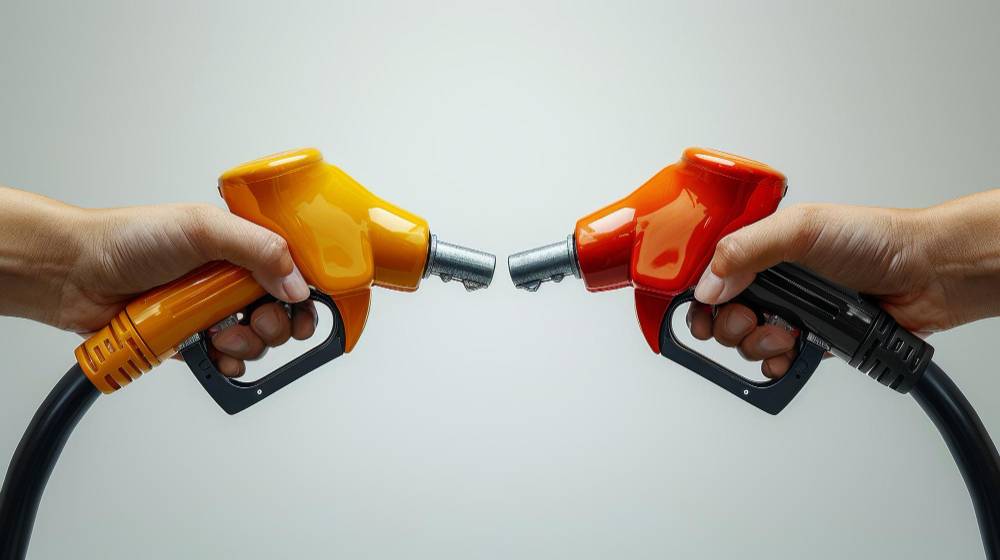Menu

Whether you're cruising along the highway or sitting in bumper-to-bumper traffic, your car’s engine is working hard to keep you moving. But have you ever stopped to think about what’s powering it? For most drivers, the choice is between two fuel types: gasoline and diesel. While both fuels play a critical role in our transportation system, they are far from interchangeable. In fact, the differences between them extend beyond the pump price.
In this brief article brought to you by Wrights Car Care, we dive into the world of energy and explore what sets these fuels apart. If you’d rather consult with a mechanic about your vehicle’s energy source, then call Wrights Car Care to set up an appointment.
At the heart of both diesel and gasoline engines is a process known as internal combustion, where the fuel is ignited to create the energy needed to move your car. However, the way this process unfolds is where the two differ.
When it comes to fuel efficiency, diesel is the clear winner. Diesel fuel packs more energy per gallon than gasoline. This higher energy density means diesel engines can go farther on less fuel. Combine that with the fact that diesel engines are designed to operate at higher compression ratios and it’s no wonder that diesel vehicles often outperform gasoline ones in terms of miles per gallon (MPG).
Another area where diesel and gasoline engines differ is in performance. Diesel engines are known for producing high torque, which is the force that gets the vehicle moving from a stop and helps it carry heavy loads. This is why you often see diesel engines in trucks and larger vehicles that need that extra grunt to haul cargo or tow trailers.
Gasoline engines, on the other hand, tend to produce more horsepower. This is what gives your car speed and acceleration. If you’re zipping around town in a sporty coupe or sedan, a gasoline engine is probably more your style.
Diesel fuel has a higher carbon content than gasoline, which means diesel engines emit more carbon dioxide (CO2) per gallon of fuel burned. However, because diesel engines are more fuel-efficient, they can actually produce lower overall CO2 emissions in the long run.
On the flip side, diesel engines also produce more nitrogen oxides (NOx) and particulate matter (soot) than gasoline engines, which contribute to air pollution and respiratory problems.
If you are looking for a reliable and reputable auto repair shop, then put your faith in the experienced professionals at Wrights Car Care.
We are on standby to schedule your auto repair service today or arrange urgent assistance for as soon as possible. Call or message Wrights Car Care to get in touch.
Wright's Car Care offers the most reliable import and domestic auto repair services. Read our blog posts to learn more about your vehicle.
Winter is around the corner, which means your car should be ready for the cold months ahead. From freezing temperatures to icy roads, winter can take a toll on vehicles,…
READ MORENothing is more frustrating than a smelly car, especially if you can’t pinpoint the cause. If you didn’t leave an old fast-food bag behind, then chances are that it is emanating from the engine. Strange car smells may not raise concerns initially, but they can escalate into bigger, more expensive problems if left unattended. That’s where Wright’s Car Care comes in as your trusted partner…
READ MOREYour vehicle is more than just a means of transportation; it is an investment. With this in mind, taking a…
READ MOREEvery car owner knows that maintenance and repairs add up, but where you take your vehicle matters most. The cheapest…
READ MORE